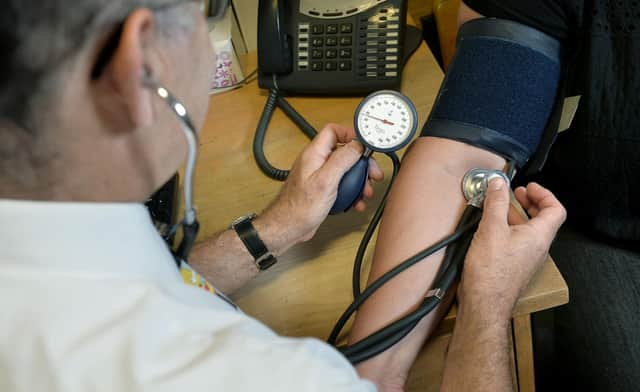NHS Scotland: I came to Scotland from Malaysia to train as a GP and fell in love with the country. But UK visa rules may force me to leave – Dr Eric Fung


What I didn’t expect was to love the country and its people so much that I would want to make it my home, where I work, live and build my career. But that’s what happened, and now I find myself in a position where I may have no option but to leave.
I am currently working as a GP trainee in Dundee, having finished medical school and my two years of foundation training in Edinburgh.
Advertisement
Hide AdAdvertisement
Hide AdWhen international students come to the UK to study medicine they are put on a tier-four visa, sponsored by NHS Education for Scotland (NES). That visa remains in place until the end of foundation training, and they then move onto a tier-two skilled-worker visa for the remainder of their medical training. After five years, doctors can apply for indefinite leave to remain in the UK.
However, international GP graduates, like myself, can find themselves two years short of this requirement, due to GP training taking just three years. I began my GP training in 2020, and will complete it next year.
Over the course of the past two years, I have made a home for myself in Dundee. I know the local community, and have built relationships with patients. I wish to work and live there once I am fully qualified.
But in order for me to work without restriction as a non-UK citizen, I require ‘indefinite leave to remain’ status. And to be eligible for that, I must have held, and worked on, a tier-two visa for five years.
This means that next year (despite having actually worked as a doctor in Scotland for five years, but my first two years in foundation training don’t count towards the tier-two requirement) I will not be eligible to apply for indefinite leave to remain. In other words, I could lose the right to remain in this country once I am a qualified GP.
My current visa is sponsored by NES. When my training is complete, however, that sponsorship ceases and my only option is to find visa sponsorship to allow me to continue to work and live in Dundee.
There is, of course, another option – one that is more realistic and practical to think about given my circumstances – and that is to leave Dundee, leave Scotland, and probably leave the UK altogether to find a job elsewhere.
After completion of training, I will have a two-week grace period to find a practice that can sponsor me to remain in Scotland for at least another two years on my current visa – currently there aren’t many practices which do this, and there is already a number of international doctors in Scotland facing similar issues, so I will have to compete with them for visa-sponsoring practices.
Advertisement
Hide AdAdvertisement
Hide AdI am deeply concerned about my international cohort of GP trainees who are due to complete their training over the next three or four years and will be affected by this.
We need as many GPs as we can get, and I can only hope a solution is found for this issue quickly.
Dr Eric Fung, BMA Scotland
Comments
Want to join the conversation? Please or to comment on this article.
